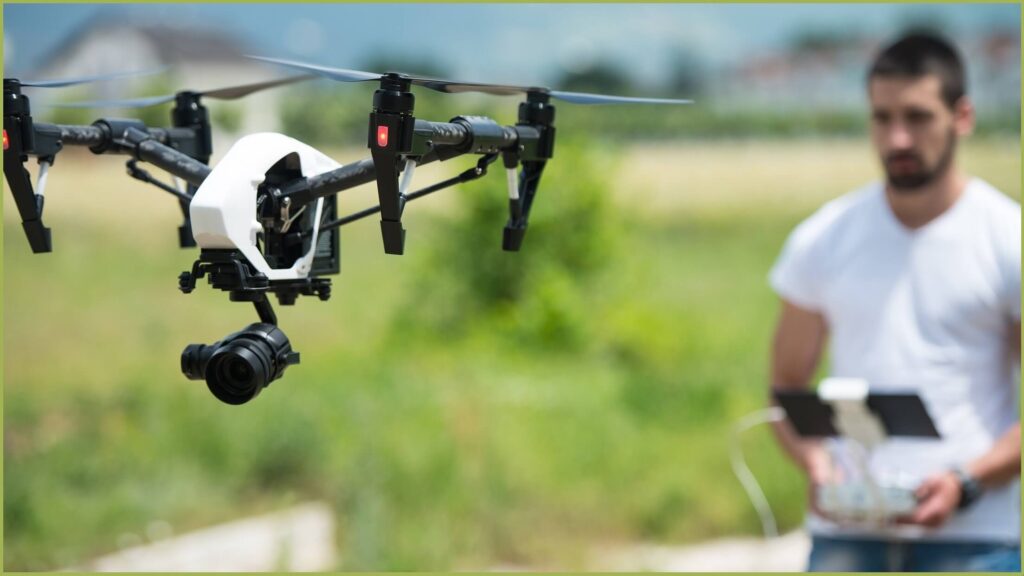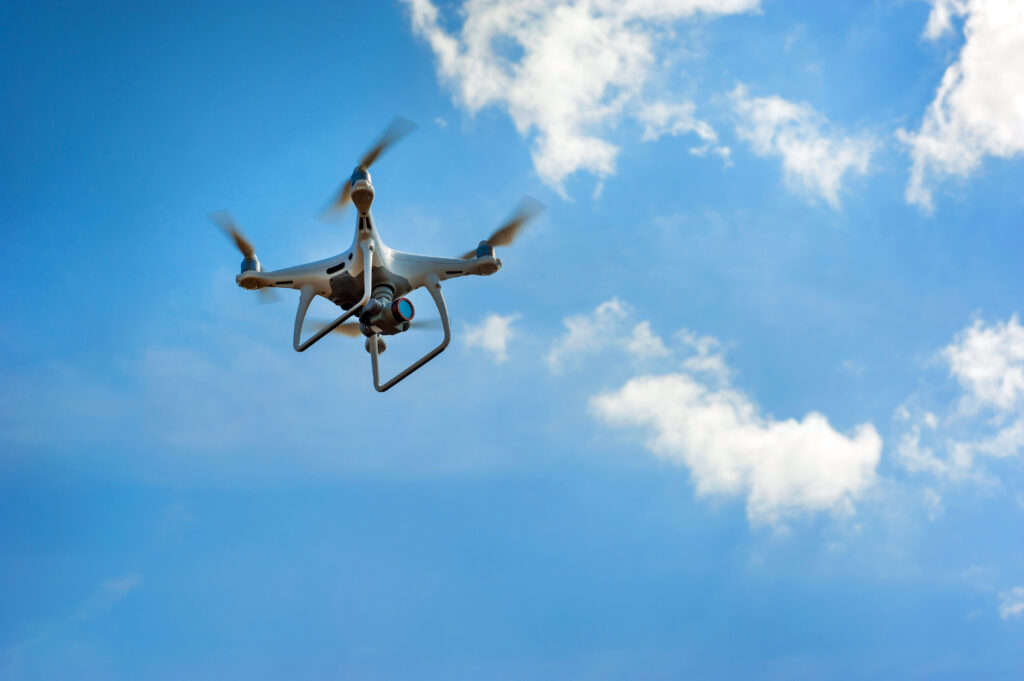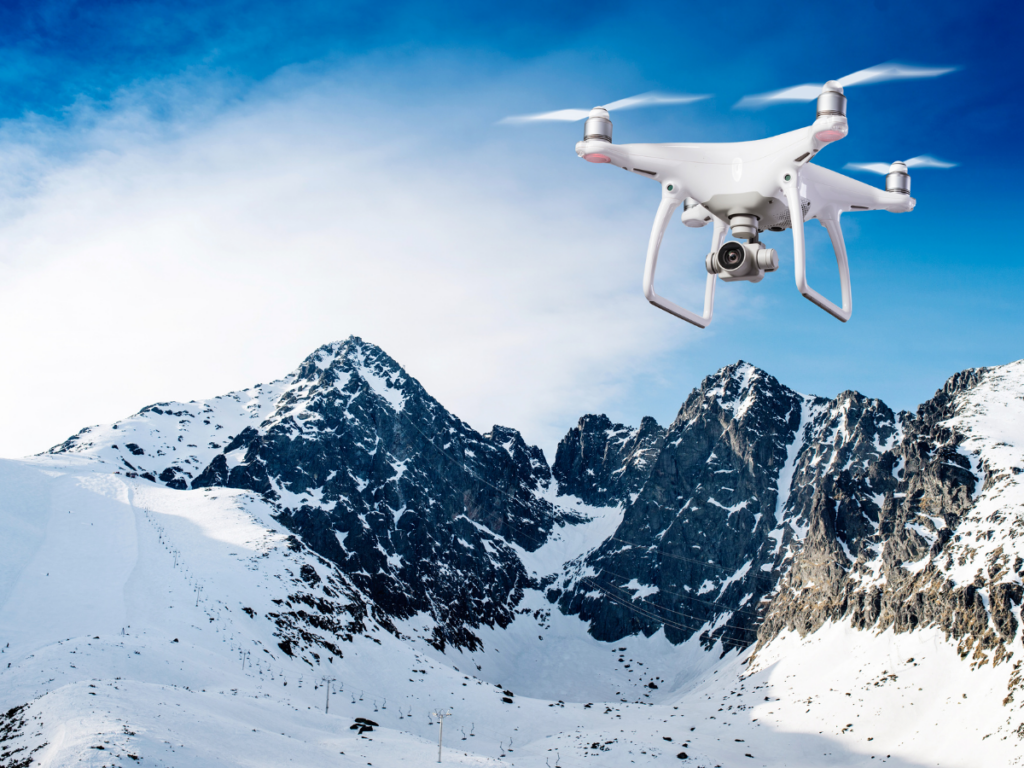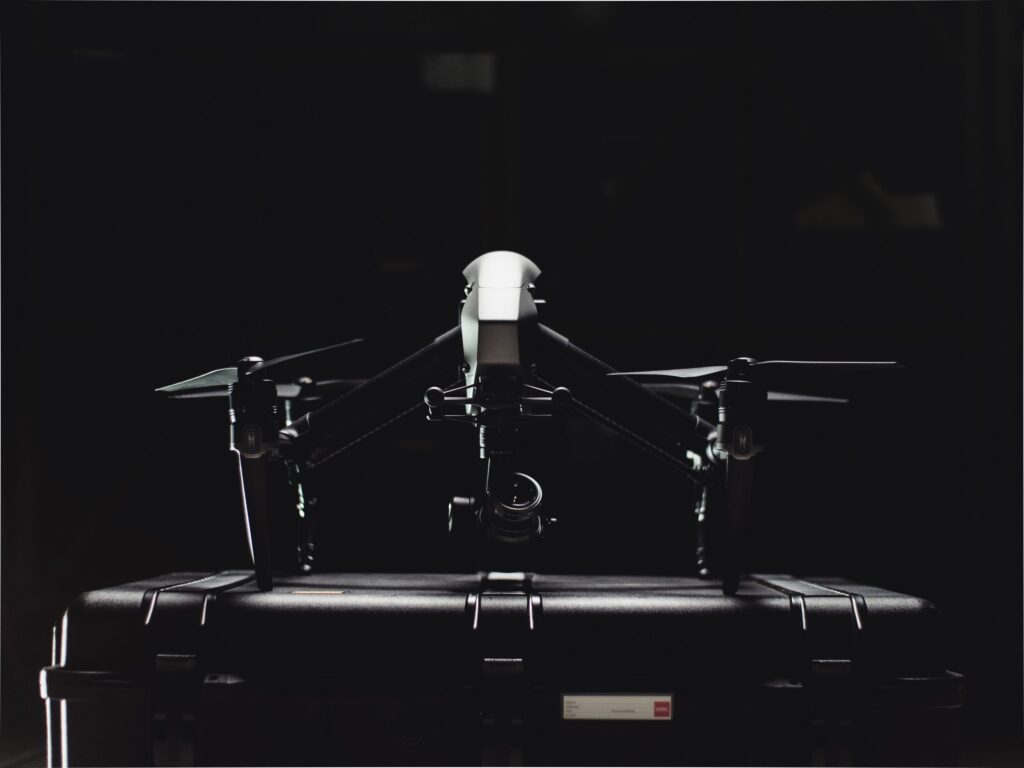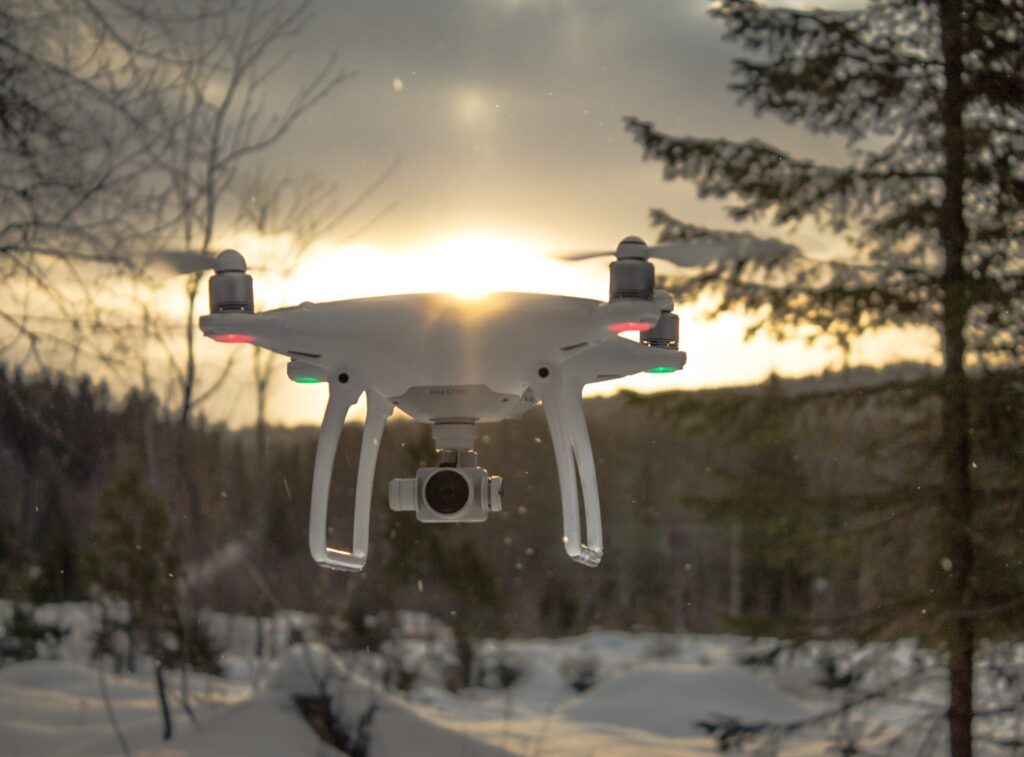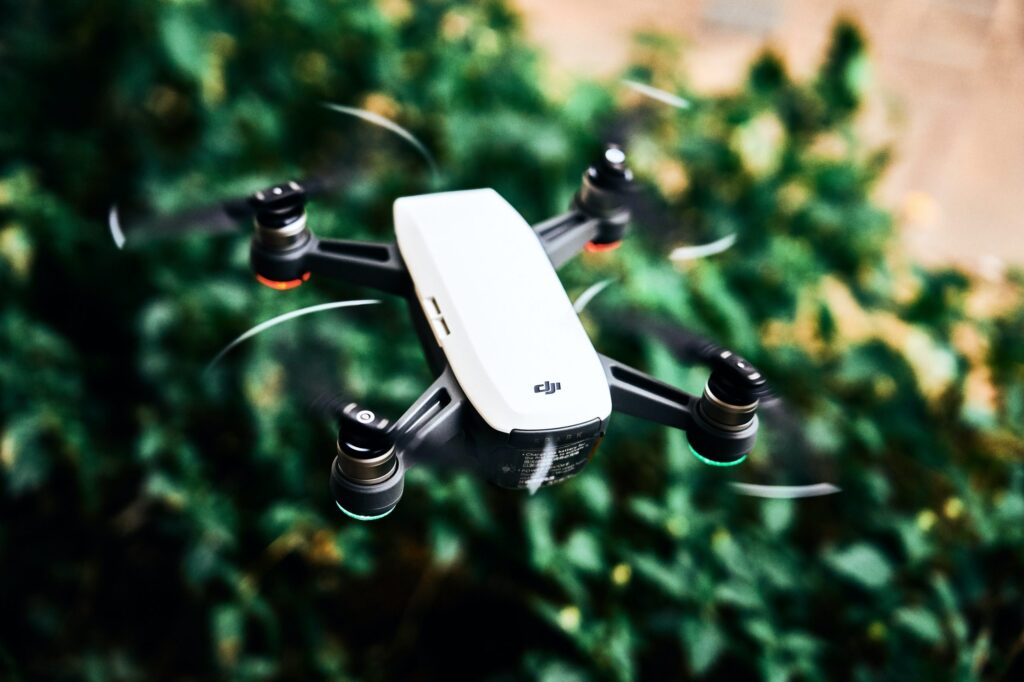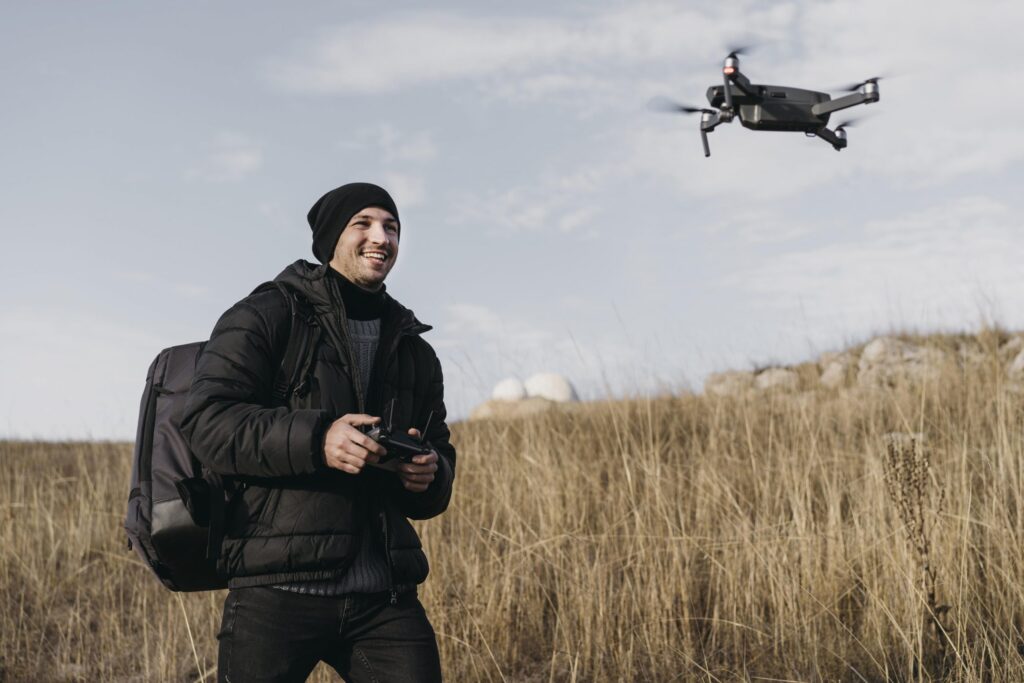Since Transport Canada changed the rules for drone operators in 2019, there has been some confusion about what’s required of drone pilots here in Alberta. Your first step to making the most of your drone and doing everything legally is taking drone training in Alberta.
Do I Need Drone Training?
Nearly everyone who wants to fly a drone will need the standard drone training. The only exceptions are if you plan to fly only micro drones or if you need to fly drones heavier than 25 kilos. To be considered a micro drone, your drone can’t weigh more than 250 grams, but if that’s all you’ve got, you don’t need any certification. Go forth and fly responsibly.
If you’re going the opposite route and working with big drones, you need more than just a bit of drone training and online certification. You fall into the category of pilots who must get a Special Flight Operations Certificate from Transport Canada.
The vast majority of drone operators, however, just need online certification.
Before Your Training
Before you start your training program, register your drone and mark it with the registration number. Registering only costs $5, but the penalty for flying one that isn’t registered is $1,000. To register, you’ll need the purchase date, details about the type of drone you have, and a method of online payment.
There are several good reasons to follow this rule beyond just staying in compliance and avoiding a fine!
Learn About Recalls Fast
If you’ve registered your drone, Transport Canada can get in touch with you quickly if there’s been a recall issued on your drone. Manufacturers tend to just post recall notices on their website, which means the onus is usually on you to notice the recall. Transport Canada can get a notification to you a lot faster.
Get Your Drone Back
If an errant wind gust blows your drone away, or if someone steals it, you have a much better chance of getting it back if you’ve registered.
Prove Which One Is Yours
If someone is doing something illegal with a drone around the same time and the same area where you’ve been flying, your registration number could be what proves your innocence. And if someone steals your number and sticks it on their own drone before running off to wreak havoc, you’ll be able to prove which drone is really yours through the details you gave at registration.
Choosing Your Training
Transport Canada specifies two different types of drone training in Alberta: basic and advanced. Which is right for you?
You Need Basic Training If…
As long as you don’t plan to fly over any bystanders, won’t be flying closer than 30m horizontally to any people, and don’t need to go into controlled airspace, all you need is the basic training. If you’re like most of us and just want to fly your drone for a hobby or to take great pictures, this is all you need.
You Need Advanced Training If…
If you’re going to do any of the things mentioned above, like fly over bystanders, you need the advanced operations training and certificate. If you’re flying into controlled airspace, though, be sure to get permission from NAV Canada before you do.
I’m Not Sure What I Need: What’s Controlled Airspace?
If you’re not completely sure where controlled airspace is in Alberta, be sure to check the Drone Site Selection Tool provided by the National Research Council Canada. This gives you a general idea of where controlled airspace is in each province, and if you look closely, you’ll see that most controlled airspace is the 5.5km around airports and heliports and anywhere over national parks.
There is one type of controlled airspace that might not be on the map, though. If there’s an emergency situation or an advertised event, the area around it automatically becomes a no-drone zone. Don’t fly over natural disasters, like floods or fires, or anywhere there are first responders, traffic accidents, or special advertised outdoor events, like concerts. You need a Special Flight Operations certificate to do so.
The First Step of Drone Training in Alberta: Online Certification
This is the good part: getting the certification you need to fly legally. To qualify for your Basic Operations certificate, you need to pass the Small Basic Exam.
The Basics of the Small Basic
It costs just $10 to take this exam, which is made up of 35 multiple-choice questions. You get an hour and a half to take it and must pass with at least 65%. If you fail, you have to wait a day before you can take it again, but you can take it as many times as you want.
Be aware that you have to keep your knowledge up-to-date. To keep your certificate valid, you’ll need to show that you’ve updated your knowledge in some way every two years at a minimum. You can do this by taking a drone training program, a self-study course approved by Transport Canada, or by taking a Transport Canada safety seminar.
The Good News
The good news about this basic exam is that you get your results instantly, and, assuming you pass, you can immediately print out your pilot certificate and get out there flying. Just be sure to keep your certificate with you any time you’re operating your drone.
The Not-So-Good News
The not-so-good news is that since early 2019 the exam has gotten a lot harder. There are a lot of new rules to be covered, but this does mean certified pilots are better drone pilots than they used to be. Transport Canada strongly urges you to go to drone flight school to make sure you’re ready for the exam.
Drone Flight School
Don’t let the idea of drone flight school put you off. You can attend courses online, so convenience isn’t an issue. Taking a training course is well worth the time investment, too, and not just because it will get you prepared for the exam. Here are some other benefits to encourage you to seek out drone training in Alberta:
You’ll Have More Fun
Nearly anyone can get their drone up into the air, at least with enough practice. But not everyone is really enjoying their drone to the fullest. Your drone training will help you understand just what your drone’s capable of doing (and how to make it do that).
You’ll Protect Your Investment
Drones are getting cheaper, but they’re still an investment. Their size makes them susceptible to wind gusts and sudden icy conditions threaten drones far sooner than larger aircraft. In fact, it only takes 3mm of ice to send your drone crashing back to earth. The biggest threat to drones, however, is user error. Learn how to avoid all these issues and protect your drone through your drone training in Alberta.
You’ll Protect Yourself
The fines and consequences for flying without a certificate, and particularly if anyone should get hurt, are significant. Taking drone training makes it easier to get your certificate and stay in compliance, but it also gives you the skills you need to avoid accidents and injuries that could end all the fun.
Considering Drone Pilot Training?
Whether you need to pass the exam and get your certificate, show you’ve updated your knowledge to keep a certificate current, or you’re just learning about drones and want to find out everything you can do with yours, drone pilot training is the way to go. Visit Drone Pilot Training today and find out about easy online options that can get you the training you need!

